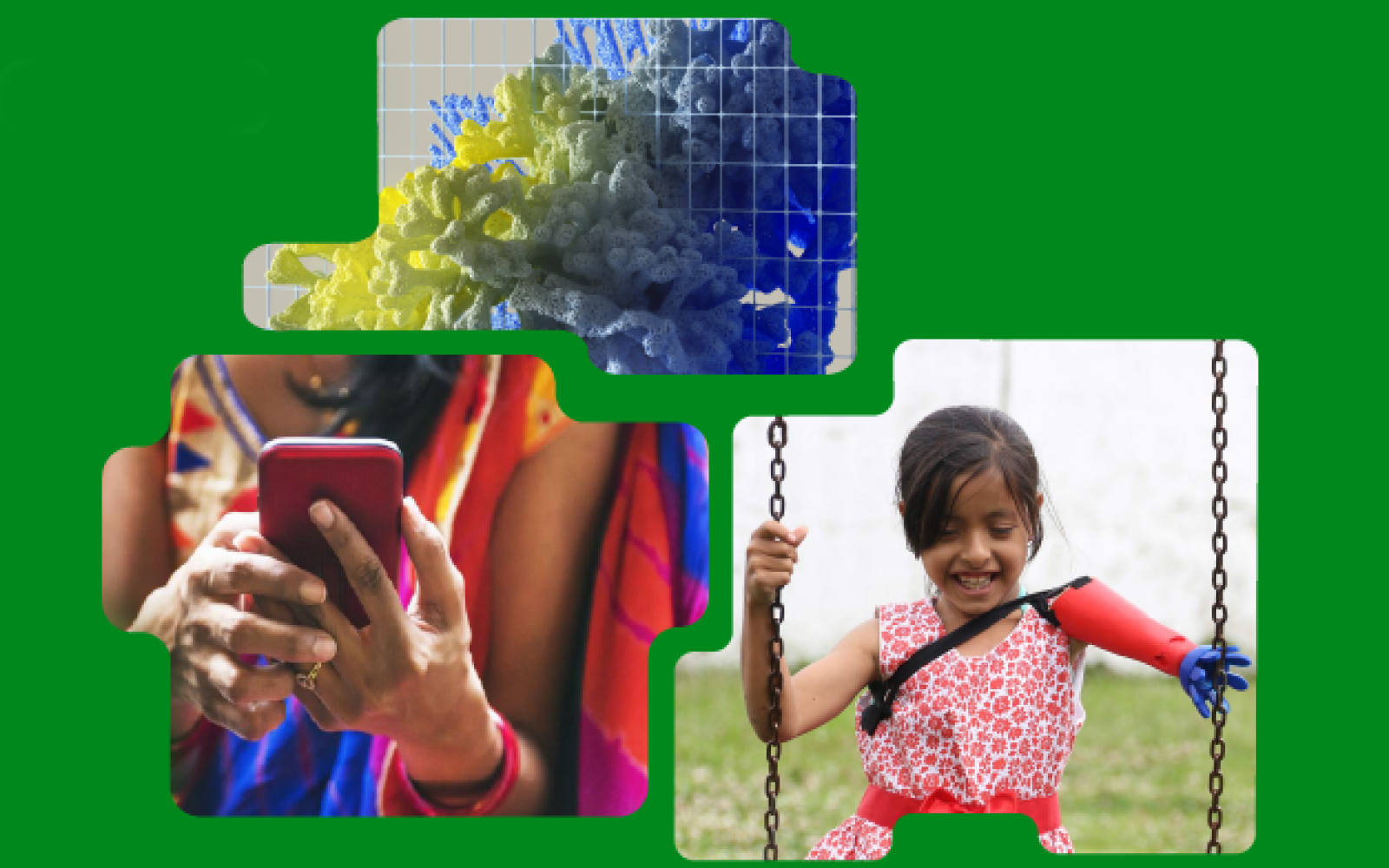Social Entrepreneurs Leveraging and Shaping Artificial Intelligence
A collaboration between Ashoka and OpenNyAI on an edition of the Social Innovations Journal that highlights bright spots in our global ecosystems and outlines key how-tos that can help social innovators and responsible AI practitioners move up their learning curves faster. (Also available in Spanish)

Dear Reader,
While tech executives in Silicon Valley and academics in Ivy League Schools are busy proliferating ethical AI principles and voluntary commitments to manage risks, a key voice is missing from the conversation. Flying under the radar is a growing group of social entrepreneurs leveraging AI for social impact and shaping its trajectory. With ethics at the center of their work, these practitioners constitute an early warning system for the unintended consequences of technology, as well as an innovation engine, constantly building new ways to address both age-old and emerging challenges. There is no more important time than now to pay attention to these bright spots, the lessons they are teaching us about building tech that works for humanity, and the role we can all play. Leading social innovators are vital stakeholders and potential leaders in the journey to build responsible AI (and its accompanying safeguards).
Ashoka and OpenNyAI teamed up for this publication to highlight not just bright spots in our global ecosystems but also the key how-tos that can help more social innovators and responsible AI practitioners move up their learning curves faster.
Presently, the majority of the world’s social entrepreneurs have yet to adopt AI in their work. Whether it is out of concern for the potential negative impacts of these technologies or because of resource constraints, this represents an untapped opportunity on two fronts. Though AI, like any other technology, is just a tool and never a solution in and of itself, it can reveal brand-new opportunities for impact that will not be uncovered unless social entrepreneurs lead the way. In addition, and perhaps even more importantly, if social entrepreneurs remain absent from this space, they will have no chance of significantly shaping the future of AI. We urgently need an on-ramp to learn how to build with AI and simultaneously shape and inform Responsible AI.
In this issue of the Social Innovations Journal, you will find insights on 1) how to build up your organizational readiness and start tinkering responsibly with Artificial Intelligence and 2) practical learnings distilled from use cases in a variety of fields such as justice, health, and media.
Evidently, this is a field that is still in its infancy, but we must begin sharing with each other what works and what doesn’t so we can build what’s next.
Hanae Baruchel, Tech for Humanity Lead at Ashoka
Sachin Malhan, Co-founder at Agami
Nicholas Torres, Co-founder at Social Innovations Journal
Articles:
- Start Tinkering, before Building – Early Lessons from Ashoka's AI Lab – Odin Muhlebein & Daniela Matielo
- The what, when, and how of incorporating AI governance in social enterprises – Nidhi Sudhan
- AI, Justice and the Ecosystem Approach – Notes from the OpenNyAI Mission – Smita Gupta & Atreyo Banerjee
- How can judiciary embrace the technological revolution and improve justice? The Brazilian case. – Anderson de Paiva Gabriel
- Diversity, Equity and Inclusion in Practice. Responsible AI Use Cases from Latin America and the Caribbean. – Cristina Martínez Pinto
- Welcoming AI! … and turning it into an unprecedented ally to tackle disinformation in Spanish and other languages – Laura Zommer
- Harnessing Artificial Intelligence to Improve Digital Health Coaching – Nneka Mobisson & K M Jawadur Rahman
- Chatbots and the complexities of delivering AI-enabled support to survivors of gender-based violence – Hera Hussain & Nadine Krish Spencer
- Empowering NGOs with Glific: A WhatsApp Chatbot Revolution – Tejas Mahajan
- How to partner with big tech companies to advance your tech needs – Jeanine Buzali